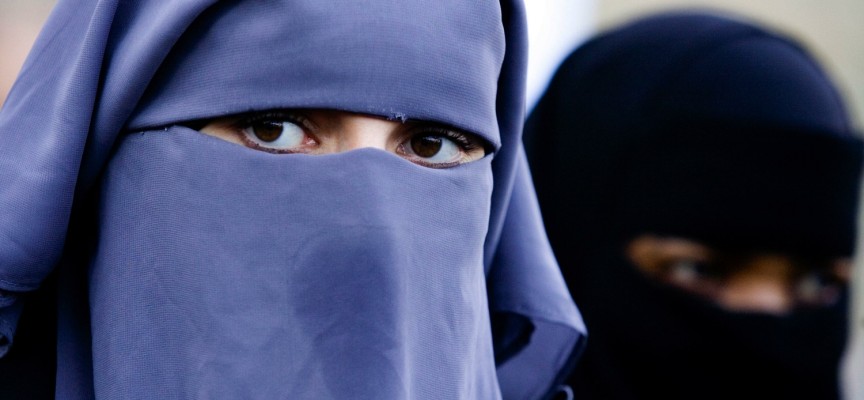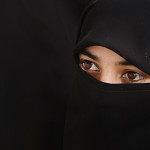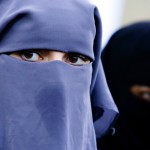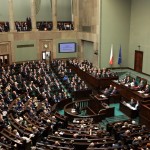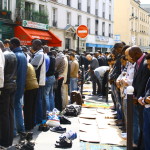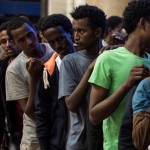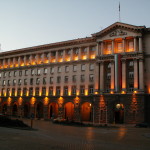July 1st, 2014 was not a good day for religious freedom and for the rights of minorities in Europe. On this day, the European Court of Human Rights ruled that states have the right to restrict heavily the rights of the public practice of religion. The specific case concerns the prohibition of the Burqa in public spaces which the French Republic introduced in 2011 as the first country in Europe. This Burqa ban does not violate the human rights of Muslim women, according to the opinion of the majority of judges in Strasbourg. The right of the State to define and enforce specific, culturally determined rules of living together in a public space – such as the unveiled face – is, therefore, more important than the right of individual Muslim women to freedom of religion. A minority of the judges took a different view, and the debate on this decision has since then being held on.
After Belgium had taken over the now confirmed French legislation already in 2011, now in other European countries, such as Austria and Switzerland, are running preparations for political initiatives to push through similar laws. And in Frankfurt, one of the most multicultural cities in Germany, the City Council is discussing on a regime on the French model.
Other countries, regions and cities in Europe will probably follow soon. Because after the Strasbourg judgment, against which no revision is possible, there are no longer legal arguments against such a ban. Now political forces and groups who want to make a stand against the growing cultural presence of Islam in Europe have free rein to make it clear with a robust Burqa or niqab ban, who the master in Europe is.
It is a bitter irony of history that, in parallel to the Strasbourg judgment, the holy warriors of Isis in Iraq and Syria have advanced further and further and have prevailed in their newly occupied territories with great brutality, imposing a fundamentalist version of Islam. While the Isis rulers forced women, with the threat of draconian penalties, to conceal their face, Europe’s highest court ruled that in our culture the power of the state has the right to ban veiling in public space under the threat of fines.
It does not take much dialectic and logic to realize that both contradict the principle of the freedom of religion! In a liberal constitutional state government coercion against the special behaviour of religious (or cultural) minorities is only required if this behaviour endangers public order or health or religious peace. Such dangers are not to be recognized when wearing body concealment. Of course, fully veiled women act as a provocation in a time in which half-nakedness almost already seems to be the norm. But it is a challenge that anyone who wants religious freedom and tolerance can stand.
The long-term consequences of the Burqa judgment for other religions and other areas of social life cannot be predicted today. But they are likely to endanger religious peace and to bring Christian churches in distress. Maybe the state will in future prohibit parents to withhold their 17-year-old daughter from the use of contraceptives because of their religious conviction – after all, the right to self-determined sex without pregnancy effects is of societal consensus in many Western European countries. Another state might prohibit the seal of confession to a Catholic priest, because it hinders the rule of prosecution of murderers and sexual abuse perpetrators. After the Strasbourg judgment, this is entirely possible. And again elsewhere, the state will prohibit the churches, with reference to the social affirmation of gay marriage, to offer marriages exclusively to heterosexual couples.
The balance between the right of the state to impose its values, and the right of individuals and groups to be guided by other principles and traditions is difficult to find. With the Strasbourg Burqa judgment, the balance is jerky in favor of the state. The legal peace is not served in the long term.
Der 1. Juli 2014 war kein guter Tag für die Religionsfreiheit und für die Rechte von Minderheiten in Europa. An diesem Tag entschied der Europäische Gerichtshof für Menschenrechte, dass Staaten das Recht haben, die Rechte der öffentlichen Religionsausübung massiv einzuschränken. Im konkreten Fall ging es um das Verbot der Burka im öffentlichen Raum, das die Französische Republik 2011 als erstes Land Europas eingeführt hat. Dieses Burka-Verbot verstößt laut Auffassung der Mehrheit der Straßburger Richter nicht gegen die Menschenrechte muslimischer Frauen. Das Recht des Staates, bestimmte, kulturell geprägte Regeln des Zusammenlebens im öffentlichen Raum – wie etwa die Unverhülltheit des Gesichts – festzulegen und durchzusetzen, ist demnach wichtiger als das Recht einzelner muslimischer Frauen auf freie Religionsausübung. Eine Minderheit der Richter vertrat eine andere Auffassung, und die Debatte über dieses Urteil hält seither an.
Nachdem Belgien bereits im Jahr 2011 die jetzt bestätigte französische Regelung übernommen hatte, laufen nun auch in anderen europäischen Ländern, etwa in Österreich und in der Schweiz, Vorbereitungen für politische Initiativen, um ähnliche Gesetze durchzubringen. Und in Frankfurt am Main, einer der am stärksten multikulturell geprägten Metropolen Deutschlands, diskutiert das Stadtparlament über eine Regelung nach französischem Vorbild.
Andere Länder, Regionen und Städte in Europa werden wohl bald folgen. Denn nach dem Straßburger Urteil, gegen das keine Revision mehr möglich ist, gibt es keine rechtlichen Argumente mehr gegen ein solches Verbot. Nun haben politische Kräfte und Gruppen, die ein Zeichen gegen die wachsende kulturelle Präsenz des Islam in Europa setzen wollen, freie Bahn, mit einem robusten Burka- oder Niqab-Verbots klarzumachen, wer Herr im europäischen Haus ist.
Es ist eine bittere Ironie der Geschichte, dass parallel zum Straßburger Urteil die Gotteskämpfer der Isis im Irak und in Syrien immer weiter vorgedrungen sind und in ihren neu besetzten Gebieten mit großer Brutalität eine fundamentalistische Version des Islam durchgesetzt haben. Während die Isis-Machthaber Frauen mit der Androhung drakonischer Strafen zur Verschleierung zwangen, entschied Europas höchstes Gericht, dass in unserem Kulturkreis die staatliche Macht das Recht hat, die Verschleierung im öffentlichen Raum unter Androhung von Geldstrafen zu verbieten.
Man braucht nicht viel Dialektik und Logik, um zu erkennen, dass BEIDES dem Prinzip der Religionsfreiheit widerspricht! In einem freiheitlichen Rechtsstaat ist staatlicher Zwang gegen das Sonderverhalten religiöser (oder kultureller) Minderheiten nur dann erforderlich, wenn dieses Verhalten die öffentliche Ordnung oder die Gesundheit oder den religiösen Frieden gefährdet. Solche Gefahren sind aber beim Tragen von Körperverschleierungen nicht zu erkennen. Natürlich wirken voll verschleierte Frauen in einer Zeit, in der die Halbnacktheit beinahe schon der Normalzustand zu sein scheint, als Provokation. Aber es ist eine Provokation die jeder aushalten kann, der Religionsfreiheit und Toleranz will.
Die langfristigen Konsequenzen des Burka-Urteils für andere Religionen und andere Bereiche des gesellschaftlichen Zusammenlebens sind heute noch nicht absehbar. Aber sie sind geeignet, den Religionsfrieden zu gefährden und auch die christlichen Kirchen in Bedrängnis zu bringen. Vielleicht wird der Staat künftig Eltern verbieten dürfen, dass sie ihrer 17-jährigen Tochter aus religiöser Überzeugung Verhütungsmittel vorenthalten – denn schließlich ist das Recht auf selbstbestimmten Sex ohne Schwangerschaftsfolgen gesellschaftlicher Konsens in vielen westeuropäischen Ländern. Ein anderer Staat wird vielleicht das Beichtgeheimnis für katholische Priester verbieten, weil es die rechtsstaatliche Verfolgung von Mördern und sexuellen Missbrauchstätern behindert. Nach dem Straßburger Urteil ist das durchaus möglich. Und wiederum anderswo wird der Staat den Kirchen unter Verweis auf die gesellschaftliche Bejahung der Homo-Ehe untersagen, dass sie Eheschließungen ausschließlich für heterosexuelle Paare anbieten.
Die Balance zwischen dem Recht des Staates, seine Werte durchzusetzen, und dem Recht von Einzelnen und Gruppen, sich an anderen Prinzipien und Traditionen zu orientieren, ist schwierig zu finden. Mit dem Straßburger Burka-Urteil neigt sich die Waage ruckartig zugunsten des Staates. Dem Rechtsfrieden dient das auf Dauer eher nicht.
La sentenza di Strasburgo sul burqa
Il 1° luglio 2014 non è stata una bella giornata per la libertà religiosa e per i diritti delle minoranze in Europa. In questo giorno la Corte europea dei diritti dell’uomo ha stabilito che gli Stati possono limitare pesantemente i diritti della pratica pubblica della religione. Nel caso specifico si tratta del divieto d’indossare il burqa negli spazi pubblici che la Repubblica francese ha introdotto, primo paese in Europa, nel 2011. Questo divieto del burqa non viola i diritti umani delle donne musulmane, secondo il parere della maggioranza dei giudici di Strasburgo. Il diritto dello Stato di definire e imporre specifiche regole culturalmente determinate di convivenza in uno spazio pubblico – come lo svelamento del viso – è quindi più importante del diritto delle singole donne musulmane e del libero esercizio della religione. Una minoranza dei giudici ha una visione diversa, e da allora il dibattito su questa decisione continua.
Dopo che il Belgio, già nel 2011, aveva adottato la normativa, ora confermata dai francesi, oggi sono in programma anche in altri paesi europei, come l’Austria e la Svizzera, iniziative politiche per far passare leggi simili. E a Francoforte, una delle città più multiculturali in Germania, il consiglio comunale sta discutendo una regolamentazione sul modello francese.
Altri paesi, regioni e città d’Europa probabilmente seguiranno presto. Perché, dopo la sentenza di Strasburgo contro la quale non è più possibile nessuna revisione, non ci sono più argomenti giuridici nei confronti di tale divieto. Forze politiche e gruppi che vogliono prendere posizione contro la crescente presenza culturale dell’Islam in Europa hanno via libera a mettere in chiaro, con un forte divieto al burqa o al niqab, chi sia il padrone di casa in Europa.
Si tratta di un’amara ironia della storia che, in parallelo con la sentenza di Strasburgo, i sacri guerrieri di Isis (Stato islamico dell’Iraq e del Levante) in Iraq e Siria avanzino sempre più e abbiano prevalso, nei territori appena occupati da loro con grande brutalità, imponendo una versione fondamentalista dell’Islam. Mentre i potenti di Isis hanno costretto le donne, con la minaccia di sanzioni draconiane, a coprirsi il viso, la più alta corte d’Europa ha stabilito che nella nostra cultura il potere dello Stato ha il diritto di vietare il velo nello spazio pubblico sotto la minaccia di multe.
Non ci vogliono molta dialettica e logica per capire che entrambi contraddicono il principio della libertà di religione! In uno Stato di diritto liberale la coercizione contro il comportamento particolare di minoranze religiose (o culturali) è necessaria solo se questo comportamento mette in pericolo l’ordine pubblico o la salute o la pace religiosa. Tali pericoli non sono riconoscibili in caso di occultamento del corpo. Naturalmente le donne completamente velate hanno l’effetto di una provocazione in un tempo in cui la semi nudità sembra essere quasi già la norma. Ma è una sfida che chiunque vuole la libertà religiosa e la tolleranza può sopportare.
Le conseguenze a lungo termine della sentenza sul Burqa per le altre religioni e le altre aree della vita sociale oggi non sono ancora prevedibili. Ma sono suscettibili di mettere in pericolo la pace religiosa e di porre le Chiese cristiane in difficoltà. Forse lo Stato in futuro potrebbe vietare ai genitori di proibire alla propria figlia diciassettenne l’uso di contraccettivi per convinzione religiosa – poiché, dopo tutto, il diritto al sesso autodeterminato, senza conseguenze di gravidanza, ha consenso sociale in molti Paesi dell’Europa occidentale. Un altro Stato potrebbe proibire il sigillo della confessione a un sacerdote cattolico, perché ostacola il perseguimento da parte dello Stato di assassini e colpevoli di abusi sessuali. Dopo la sentenza di Strasburgo, ciò è assolutamente possibile. E, nuovamente, altrove lo Stato vieterà alle Chiese, con riferimento all’affermazione sociale del matrimonio gay, di offrire il matrimonio esclusivamente alle coppie eterosessuali.
L’equilibrio tra il diritto dello Stato d’imporre i suoi valori e il diritto di individui e gruppi di essere guidati da altri principi e tradizioni è difficile da trovare. Con la sentenza di Strasburgo sul burqa, la bilancia si è bruscamente inclinata a favore dello Stato. A lungo andare questo non servirà proprio alla pace giuridica.
Ludwig Ring-Eifel
Chefredakteur, Kna (Deutschland)
Latest posts by Ludwig Ring-Eifel (see all)
- What will be Pope Francis’ message? - 14 ottobre 2014
- Stop the slaughterers in Iraq - 16 agosto 2014
- The Strasbourg Burqa judgment - 10 luglio 2014

